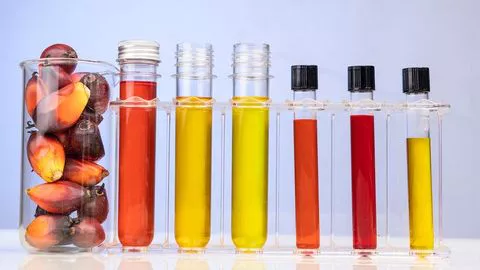Description
Biodiesel oils are renewable, environmentally friendly fuels derived from biological sources such as vegetable oils, animal fats, and algae. They serve as an alternative to traditional petroleum-based diesel, offering significant environmental and performance benefits. Biodiesel oils contribute to reduced greenhouse gas emissions, improved energy security, and a lower carbon footprint.
Benefits of Biodiesel Oils:
Environmental Impact: Reduces greenhouse gas emissions and dependence on fossil fuels.
Renewable Resource: Made from renewable biological sources, supporting sustainable energy practices.
Reduced Pollution: Lower levels of harmful pollutants, such as sulfur and particulates, compared to conventional diesel.
Improved Lubrication: Enhances engine lubrication, potentially extending engine life.
Energy Security: Diversifies energy sources, reducing reliance on imported fossil fuels.
Types of Biodiesel Oils:
Vegetable Oils:
Examples: Soybean Oil, Canola Oil, Sunflower Oil, Palm Oil
Applications: Biodiesel production, blended fuels, renewable energy
Animal Fats:
Examples: Tallow, Lard, Poultry Fat
Applications: Biodiesel production, industrial uses, energy generation
Algae Oils:
Examples: Algal Oil, Microalgae Oil
Applications: Advanced biodiesel production, sustainable energy, research and development
Waste Oils:
Examples: Used Cooking Oil, Waste Vegetable Oil
Applications: Biodiesel production, recycling and repurposing, reducing waste
Production Process:
Feedstock Collection: Sourcing biological oils and fats from plants, animals, or waste products.
Transesterification: Reacting the oils or fats with methanol or ethanol to produce biodiesel and glycerin.
Purification: Removing impurities, excess alcohol, and residual catalysts from the biodiesel.
Quality Testing: Ensuring the biodiesel meets industry standards for performance and safety.
Application Guidelines:
Automotive Use:
Blend Ratios: Biodiesel can be used as a pure fuel (B100) or blended with petroleum diesel (e.g., B20, B50).
Compatibility: Ensure vehicle or equipment compatibility with biodiesel blends, especially in older models.
Industrial Use:
Energy Generation: Use biodiesel in generators and industrial engines to reduce emissions and support sustainability.
Lubrication: Utilize biodiesel for machinery that benefits from improved lubrication properties.
Renewable Energy Projects:
Research and Development: Invest in advanced biodiesel production technologies and alternative feedstocks.
Sustainability: Implement biodiesel solutions to meet renewable energy targets and support green initiatives.
Safety Considerations:
Quality Control: Ensure biodiesel meets industry specifications to avoid performance issues and engine damage.
Handling: Follow safety protocols for handling and storing biodiesel, including appropriate personal protective equipment (PPE).
Storage: Store biodiesel in clean, dry containers away from sunlight and moisture to prevent contamination and degradation.
Regulations: Adhere to local and national regulations regarding biodiesel production, use, and emissions.
- Biodiesel Oils
- Biodiesel Oils in bulk
Production Capacity:
10000
Delivery Timeframe:
Within 30 Days
Incoterms:
CFR - Cost and Freight
CIF - Cost, Insurance and Freight
Packaging Details:
Not informed
More about
Page Global Consultants
10-50
Employees
2M - 10M
Sales volume (USD)
90%
% Export sales
Year
Established
Business type
- Industry / Manufacturer
- Importer / Trading Company
- Representative / Agent
- Distributor / Wholesaler
Keywords
- Nuts
- Grains
- Meat
- Animal Feed
- Grains
- Oil
- Soybeans
- Corn
- Feed
- Fertilizer Ver Mais
Contact and location
-
MABUNGU ********
-
+27 7********
-
GQEBERHA / EASTERN CAPE | South Africa




















